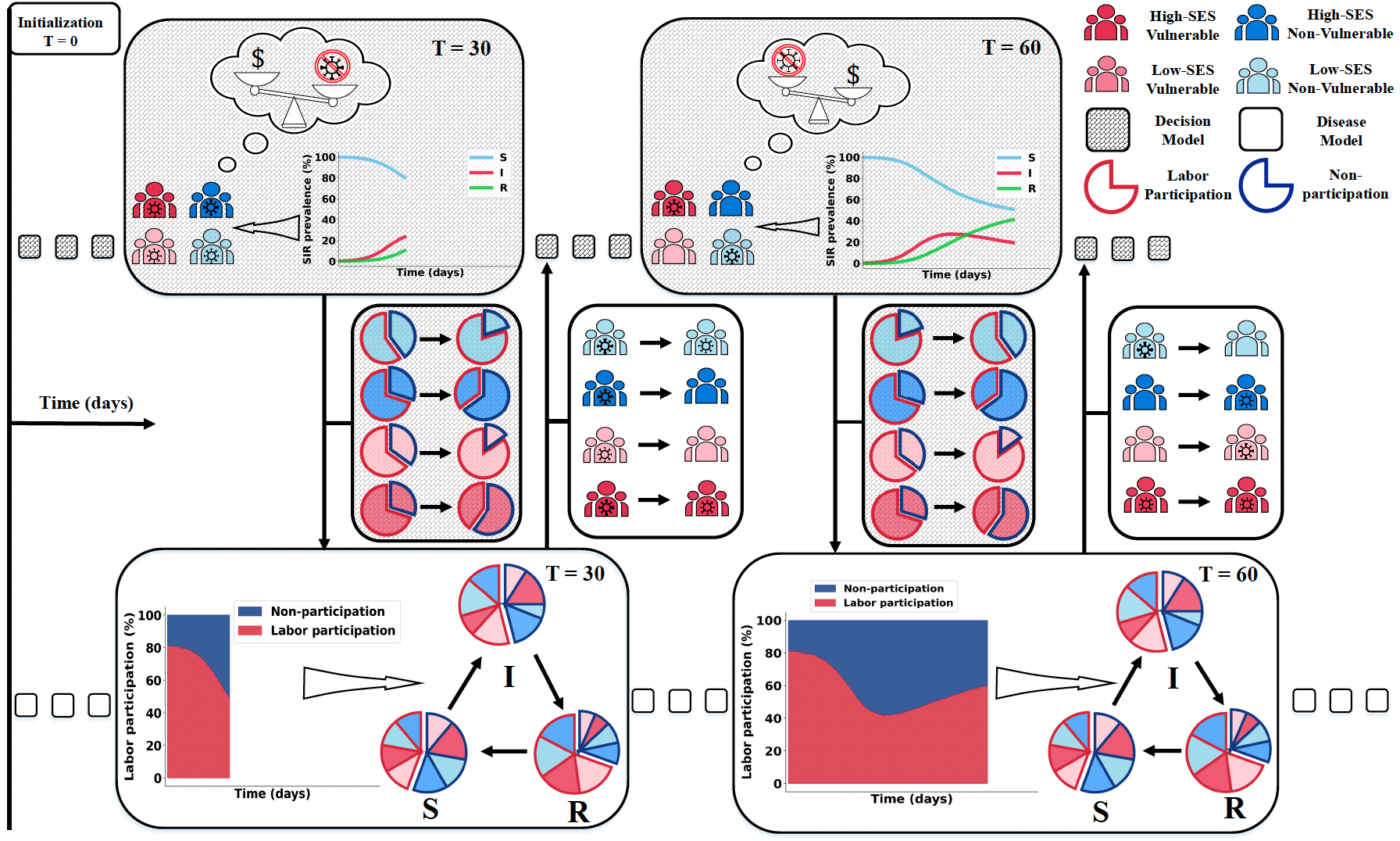Modeling the interaciton between human behavior and infectious disease dynamic
This framework integrates a risk-stratified compartmental model of disease spread and a discrete choice dynamic utility optimization model for individual decision-making. Individuals weigh the costs and benefits of behavioral choices and future payoffs based on their unique characteristics. Their decisions (obtained by solving Bellman equations) influence individuals’ risks of infection, affect population-level disease dynamics, and inform future behaviors. This feedback loop allows us to project disease outcomes while accounting for the endogenous behavioral responses and tradeoffs between health and economic well-being.

This framework allows policymakers to evaluate the health and economic impacts of interventions within a unified model, facilitating informed decision-making by providing a more comprehensive assessment of policy trade-offs.

